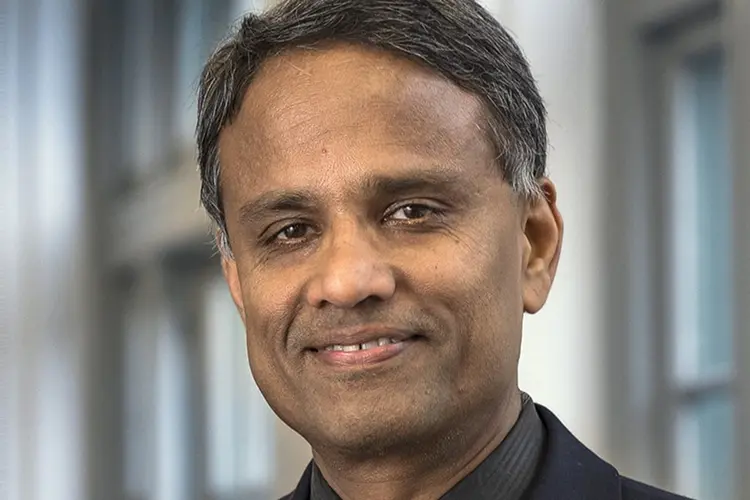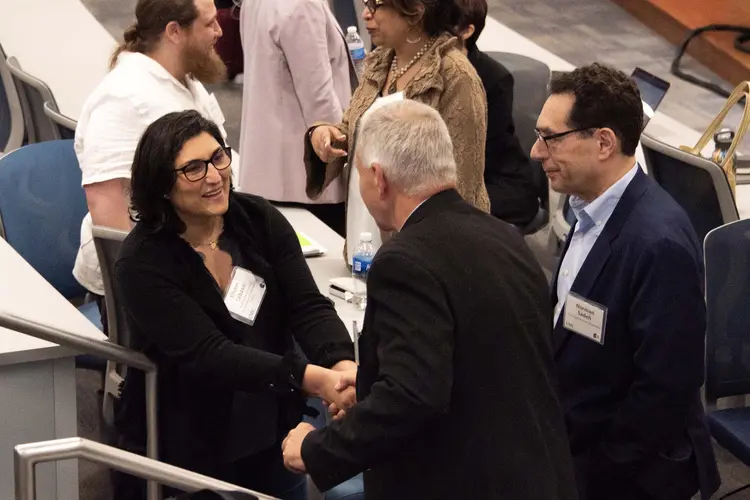CMU Professor Leads National Effort to Inform U.S. Technology Strategy
National network demonstrates how advanced analytic capabilities can inform investment in technologies to advance national security, prosperity and social well-being
Media Inquiries
A new report provides a roadmap for how modern data and analytics can help the United States assess its competitiveness and inform investments in critical technologies such as artificial intelligence, semiconductors, biopharmaceuticals, energy and critical materials.
Led by Erica R.H. Fuchs(opens in new window), a professor in Carnegie Mellon University's Department of Engineering and Public Policy(opens in new window), the National Network for Critical Technology Assessment(opens in new window) (NNCTA), brought together academics from across the country to build a vision for critical technology assessment. They shared their findings in the report, "Securing America’s Future: A Framework for Critical Technology Assessment(opens in new window)," at an event on Oct. 24, 2023 at the National Academies of Sciences.
"To truly strengthen our nation's technology and science enterprise, we must establish clear pathways for turning innovation into economic opportunities," said CMU President Farnam Jahanian. "Erica, through her scholarship at Carnegie Mellon University and her partnerships with some of the brightest academic minds in America, is the ideal person to help forge this exciting future. Under her direction, this consortium of scholars built an inspired roadmap that policymakers and investors can use to advance research and innovation, create jobs and spark transformative growth nationwide."
Fuchs testified to Congress(opens in new window) to build cross-mission analytic capacity(opens in new window) to inform national investment in and actions around critical technologies. In September 2022, she was selected to lead the network of universities funded by the U.S. National Science Foundation in a year-long, nearly $4 million pilot effort(opens in new window) to advance capabilities to identify effective federal research and development funding.
CMU's provost and chief academic officer, James H. Garrett, Jr.(opens in new window), delivered welcome remarks at Tuesday's press release and launch event. He emphasized the importance and extraordinary nature of the NNCTA.
"Historical legislation enacted in the last several years seeks to restore the role of research at the forefront of realizing the nation's most vital ambitions for its future on the global stage and realize the power of innovation to bring economic opportunity to every community," Garrett said. "Today marks the release of an unprecedented effort to demonstrate the power of new methodological tools to provide policymakers with insights needed to realize this vision.”
NNCTA brought together leading scholars from across the country to pilot analytical approaches to assessing the value of investments in specific technologies for security, economic prosperity, and broad-based social well-being. In addition to examining specific issues in artificial intelligence, semiconductors, biopharmaceuticals, energy storage and critical materials, crosscutting efforts also focused on building systematic mechanisms to assess U.S. global competitiveness.
“The National Network for Critical Technology Assessment brought together thought leaders from 13 universities across the country to demonstrate how new data and analytics approaches can support national investment and decision-making in critical technologies," said Fuchs. "This assessment can ensure that the country makes smart investments in the new technologies vital to national security, prosperity and broad-based social well-being."
The findings of this initial work set the foundations for the Assessing and Predicting Technology Outcomes(opens in new window) program launched this summer by the NSF, which seeks to forge a better understanding of and ability to predict advancements in a specific technology's capabilities, production and use.
The program will use new data sources coupled with emerging technologies, such as machine learning and predictive modeling to forecast outcomes of technology investments. Such capabilities, if developed, could provide a real-time assessment of U.S. competitiveness in specific technology areas, identify gaps in the funding environment that federal investments could overcome and evaluate the anticipated effectiveness of federal funding initiatives on U.S. innovation and competitiveness. Systematic capabilities like these do not currently exist.
"Building the intellectual foundations, data and analytic tools needed for this type of critical technology assessment requires mobilizing, synthesizing and integrating capabilities across our nation’s rich variety of researchers, disciplines and institutions," said Fuchs. "The Network put the building blocks for this effort into place to support NSF in its vital mission."
Fuchs also has a courtesy appointment in the Department of Materials Science and Engineering, Heinz College of Information Systems and Public Policy(opens in new window), and is a research associate with the National Bureau of Economic Research. Other NNCTA contributors from CMU were Lee Branstetter, Christophe Combemale, Baruch Fischhoff, Hassan Khan, M. Granger Morgan and Kate S. Whitefoot.



